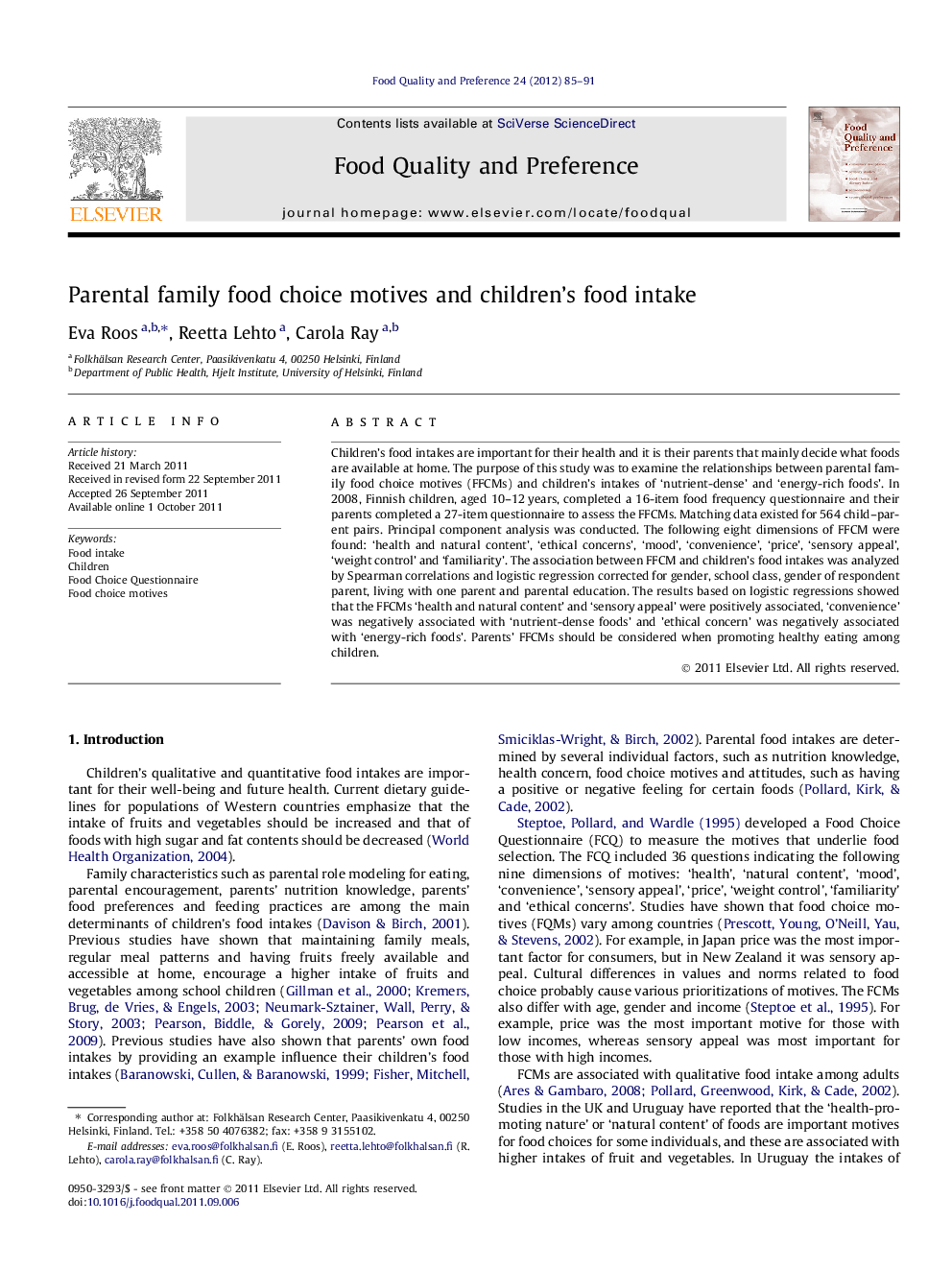| Article ID | Journal | Published Year | Pages | File Type |
|---|---|---|---|---|
| 6261468 | Food Quality and Preference | 2012 | 7 Pages |
Children's food intakes are important for their health and it is their parents that mainly decide what foods are available at home. The purpose of this study was to examine the relationships between parental family food choice motives (FFCMs) and children's intakes of 'nutrient-dense' and 'energy-rich foods'. In 2008, Finnish children, aged 10-12Â years, completed a 16-item food frequency questionnaire and their parents completed a 27-item questionnaire to assess the FFCMs. Matching data existed for 564 child-parent pairs. Principal component analysis was conducted. The following eight dimensions of FFCM were found: 'health and natural content', 'ethical concerns', 'mood', 'convenience', 'price', 'sensory appeal', 'weight control' and 'familiarity'. The association between FFCM and children's food intakes was analyzed by Spearman correlations and logistic regression corrected for gender, school class, gender of respondent parent, living with one parent and parental education. The results based on logistic regressions showed that the FFCMs 'health and natural content' and 'sensory appeal' were positively associated, 'convenience' was negatively associated with 'nutrient-dense foods' and 'ethical concern' was negatively associated with 'energy-rich foods'. Parents' FFCMs should be considered when promoting healthy eating among children.
⺠Parental family food choice motives are associated with children's food intake. ⺠Health and natural content as motive was positively associated with children's intake of healthy foods. ⺠Convenience as motive was negatively associated with children's intake of healthy foods.
